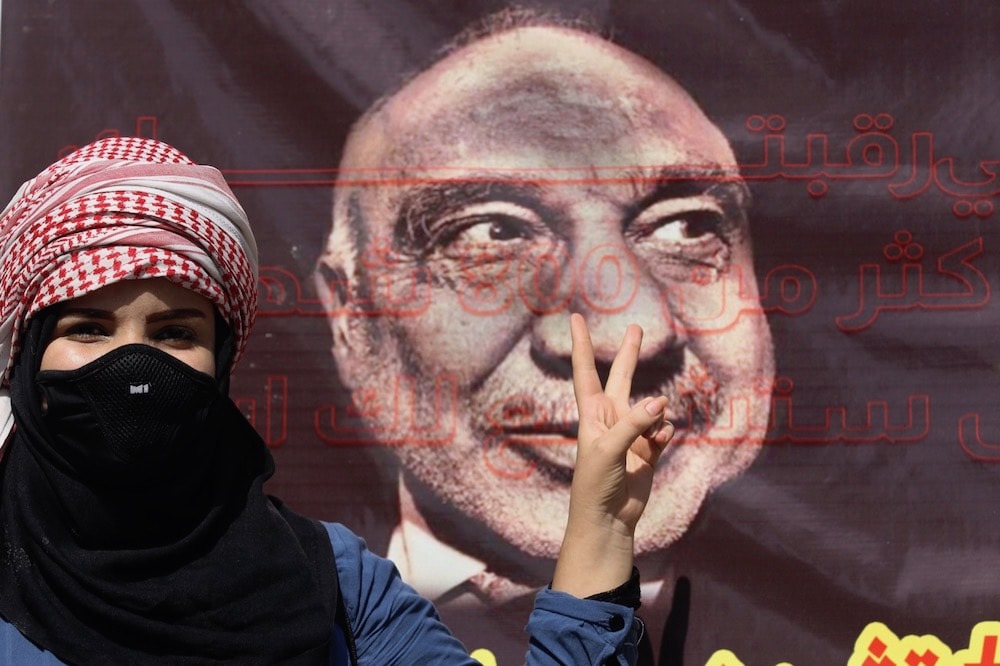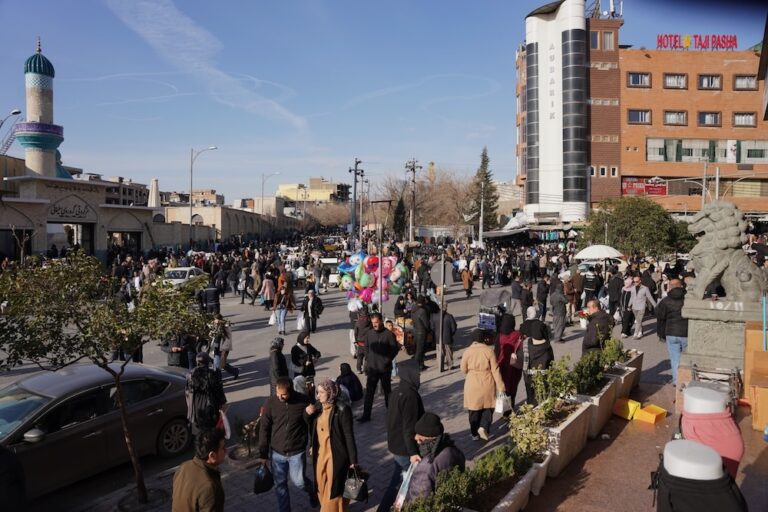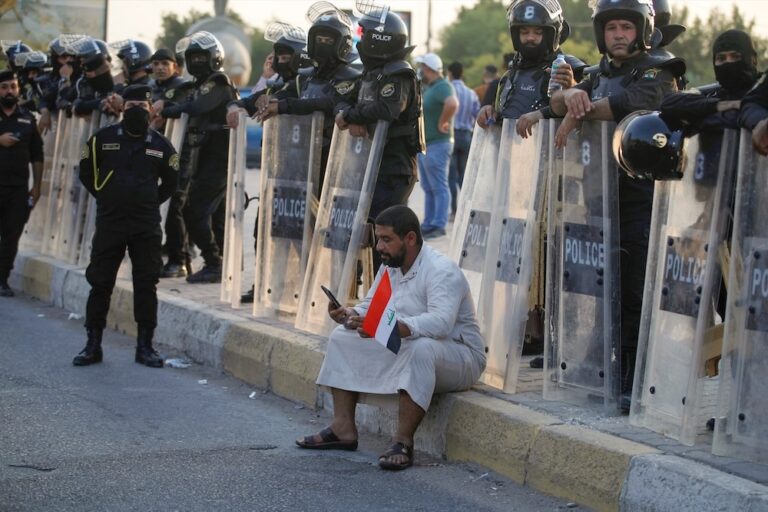New report examines the increasingly hostile environment for human rights defenders and activists following Iraq's October 2019 demonstrations.
This statement was originally published on gc4hr.org on 5 May 2022.
The Gulf Centre for Human Rights (GCHR) has published a new report, “They Will Not Shoot Down Our Dream: Challenges Faced by Human Rights Defenders in Iraq Following the October Popular Movement”, based on research carried out during a mission to the country in early 2022. The mission to Iraq found that human rights defenders, journalists and activists still hold onto hope for an end to the extreme human rights violations, but urgently need international support to help promote human rights, press freedom and accountability. The report ends with a list of recommendations for the Iraqi government to support and protect human rights defenders.
“GCHR continues to play an essential role to give voice to the hundreds of Iraqi human rights defenders, activists, protesters, journalists and other members of civil society who have been subjected to human rights violations with almost total impunity,” says the Executive Director of GCHR, Khalid Ibrahim. “This report shows how important it is to hear from Iraqi peaceful protesters who seek justice and support for their dream of a better life for everyone,” he added.
A human rights defender said, “Some of the most prominent activists of the October popular movement were forcibly disappeared as a result of their activism, calls for and organisation of demonstrations, and we do not know their fate! Were they imprisoned or kidnapped or forever disappeared?”
As one of them described it: “We live in constant anxiety and mental turmoil, and the international community remains silent, despite the submission of many important reports on the restriction of freedoms of opinion and expression, and the freedoms of assembly and peaceful demonstration.”
A human rights defender added, “We know that having decided to be human rights defenders, our lives will be fraught with danger.”
Some defenders are disappointed, and another defender said: “We were left to fend for ourselves without any follow up. We need protection and we also have to think about our livelihoods after all the losses we sustained.”
Another human rights defender said, “The rules was made clear – protect your lives and do not raise sensitive issues, especially those related to protests’ demands or human rights violations, such as arrests, enforced disappearances, torture, corruption and bribery.”
Violence targeting women human rights defenders is on the rise. They reported that: “We were essential partners in the popular movement, and we demanded social justice and voiced our protest against repressive policies, lack of security, mismanagement and corruption. As a result, we received death threats, and we were targeted by smear and defamation campaigns, in addition to cyber-extortion and cyber-bullying, without having any instruments to protect ourselves.”
A human rights defenders added, “We live in terror, and we fear that killings are part of a wider campaign aiming to silence women defenders.”
The objective of the mission was to develop new contacts and follow up on some cases raised in GCHR’s periodic reports on Iraq, while assessing the conditions for human rights defenders to report on human rights violations in Iraq. Since 2020, GCHR issued 21 periodic reports on human rights violations across Iraq, such as the killings, assassinations and kidnappings of human rights defenders, journalists and civil society activists, targeting of protesters in sit-in squares, and attacks on peaceful demonstrations, in addition to seven periodic reports (and nine appeals) on the Kurdistan region of Iraq since December 2020.
The mission to Iraq was conducted by two women who must remain anonymous for security reasons, as must all those interviewed. The mission team met with 60 journalists, human rights defenders, protesters and activists one-on-one and in some small focus groups, mostly in Baghdad and Basra (due to security issues), including activists who had fled the city to avoid assassination. There was gender balance in the interviews and focus groups. In focus groups, the mission team interviewed many activists working for women’s rights who are very inspiring, as well as youth, and human rights defenders working on minority rights. They also interviewed journalists and human rights defenders in exile online, who fled the country due to threats or targeting of their families.
To read the full report in English Language click HERE.



